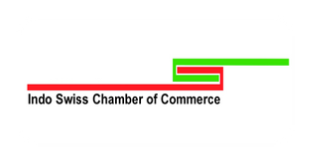SLX has launched Live Master Classes with deeper insights into sustainability, by industry experts. Enroll for the 45-minute session for free!

The certification course offers input from various experts from the industry. The course is validated globally with an industry-validated skills framework.

Do you want your job to be value-oriented? Or would you like your present job to shift focus towards meaning and value? Take this certification course and build what you are looking for!

The certification course will diversify your skillset. This will help you find better work opportunities in better companies!
The sessions will be delivered by world class faculty members with vast experience in the field of education and sustainability.
Our Certifications will help you integrate sustainable development processes and practices with ease into your deliverables & activities.
Our certification courses have comprehensive reference material on Sustainability, ESG, and many related topics.




This year’s World Economic Forum’s (WEF) conference in Davos has placed a huge emphasis on achieving the sustainable development goals (SDGs) and solving the climate crisis. One stakeholder in particular is being viewed as both the criminal and the solution for this problem. The finance industry. Executive director of Greenpeace reported that the finance industry are as culpable as the fossil industry in creating climate emergency. Greta Thunberg even went as far as demanding the financial sector to
“immediately halt all investments in fossil fuel exploration and extraction. Immediately end all fossil fuel subsidies. And immediately and completely divest from fossil fuels” (source).
Despite the negative spotlight, these financial institutions were also viewed as the force for change. From preparing transitional frameworks to move away from the current broken economic system to investing more money in Green Finance and Green Bonds. However, there is just one problem. There is a distinct lack of data and standardized reporting standards for sustainability. Without this, the capital market is unable to fully comprehend sustainable development. Therefore, they are unable to successfully invest in environmental and social projects.
It is then no surprise that data is the new oil. Data can help the finance industry assess risks in sustainability and understand where the critical climate challenges are. Data collection also means that governments can ensure environmental regulations are implemented by polluting industries. For example, data that is collected from these industries can be used to monitor their polluting activities.

As a key first step, Refinitiv has announced the launch of the Future of Sustainable Data Alliance in Davos yesterday. An alliance to accelerate capital into sustainable financing using data. The Alliance aims to solve the question
“What data do investors and governments need to meet the requirements of both regulators and customers for sustainable investments and products in pursuit of the 2030 Agenda”.
While this is a great start, it needs to be stressed that the data needed to quantify, measure and compare impact is still in its early stages. From my point of view, there are two momentous challenges that will need to be addressed to move forward. First, data reporting will need to be standardized. Whether that is one format for each industry type or one universally accepted format for all industries. Without a standardized reporting template, we will not be able to compare performance and identify best practices among industries. Second, companies will need to adopt transparency reporting. Only then can we hold these companies accountable, manage risks and most importantly, build trust.